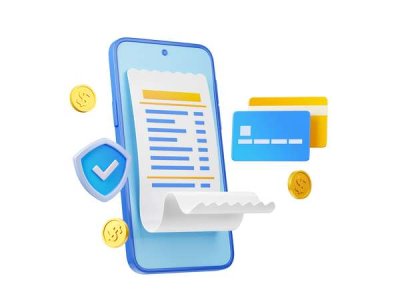Is your wallet about to become obsolete? Discover when Australia plans to go completely cashless
As the digital age accelerates, Australia is on the brink of a significant financial transformation.
Experts predict that by the end of this decade, the nation will become 'functionally cashless', a shift that is stirring concern among Australians.
With the closure of hundreds of bank branches and ATMs, a recent study revealed that 71 per cent of Aussies are apprehensive about transitioning to a cashless society, with 41 per cent expressing extreme concern.
The research by payments technology company Waave highlighted that Baby Boomers, regional Australians, and lower-income households are the most anxious about this change.

The fear is not unfounded, as two-thirds of Australians worry that going cashless could marginalise certain groups and worsen economic inequality.
Additionally, 58 per cent are concerned about the potential rise in banking and card fees.
Waave's Co-Founder and CEO, Ben Zyl, acknowledged that Australians are among the world's leading adopters of digital payments. However, he also recognised the legitimate fears surrounding consumer security and control within the current digital payments system.
Data theft, password complications, and exorbitant card fees and surcharges are at the forefront of these concerns.
‘There’s a lot of fear, particularly among those who can’t access alternatives or aren’t confident using technology,’ Mr Zyl stated.
The sentiment of 'cash nostalgia' is also prevalent, with nearly half of Aussies admitting they would miss the tactile experience of handling physical money.
He added: ‘Whether you’re younger or older, the psychology around cash is unique. We like the feel of it, the sense of control, and we tend to spend less when we pay in cash.’
Despite these concerns, the Reserve Bank's data indicated a decline in cash usage. Consumer cash payments plummeted from 70 per cent in 2007 to a mere 13 per cent in 2022.
In contrast, Australians made 30.2 million ATM withdrawals in January, the highest in a year, withdrawing over $9 billion, the largest amount since mid-2020.
Dr Angel Zhong, an Associate Professor of Finance at the Royal Melbourne Institute of Technology (RMIT), expects Australia to be functionally cashless by 2030.
This doesn't mean cash will vanish or lose its value; rather, consumer preference is increasingly leaning towards digital payments.
The transition is already in motion, reflecting a broader trend in consumer behaviour.
Professor Zhong is not alone in this sentiment. Finance Expert Sarah Wells also predicted that Australia will become a 'technically cashless' society in the near future.
‘All the changes we have seen have put us in a situation where we no longer need cash,’ she said.
‘There hasn’t been a requirement for it to come back out into circulation. Because people aren’t popping down and taking money out of the ATM or going to banks anymore,’ Ms Wells added.
The closure of 424 bank branches and the removal of 718 ATMs in the 12 months leading up to June 2023 further underscore this shift.
Despite this, the Big Four banks—Commonwealth, Westpac, Australian and New Zealand Banking Group (ANZ), and National Australia Bank (NAB)—have stated they will not go completely cashless.
As we navigate this transition, it's essential to consider the implications for all Australians, especially those who may not be as tech-savvy or who rely on cash for various reasons.
The move towards a cashless society promises convenience and efficiency but demands a thoughtful approach to ensure inclusivity and security.
 How do you feel about the move towards a cashless society? Are you ready for the shift, or do you have reservations? Share your experiences and opinions in the comments below.
How do you feel about the move towards a cashless society? Are you ready for the shift, or do you have reservations? Share your experiences and opinions in the comments below.
Experts predict that by the end of this decade, the nation will become 'functionally cashless', a shift that is stirring concern among Australians.
With the closure of hundreds of bank branches and ATMs, a recent study revealed that 71 per cent of Aussies are apprehensive about transitioning to a cashless society, with 41 per cent expressing extreme concern.
The research by payments technology company Waave highlighted that Baby Boomers, regional Australians, and lower-income households are the most anxious about this change.

A study showed that 41 per cent of Australians expressed extreme concern about moving towards a cashless society. Image source: Freepik
The fear is not unfounded, as two-thirds of Australians worry that going cashless could marginalise certain groups and worsen economic inequality.
Additionally, 58 per cent are concerned about the potential rise in banking and card fees.
Waave's Co-Founder and CEO, Ben Zyl, acknowledged that Australians are among the world's leading adopters of digital payments. However, he also recognised the legitimate fears surrounding consumer security and control within the current digital payments system.
Data theft, password complications, and exorbitant card fees and surcharges are at the forefront of these concerns.
‘There’s a lot of fear, particularly among those who can’t access alternatives or aren’t confident using technology,’ Mr Zyl stated.
The sentiment of 'cash nostalgia' is also prevalent, with nearly half of Aussies admitting they would miss the tactile experience of handling physical money.
He added: ‘Whether you’re younger or older, the psychology around cash is unique. We like the feel of it, the sense of control, and we tend to spend less when we pay in cash.’
Despite these concerns, the Reserve Bank's data indicated a decline in cash usage. Consumer cash payments plummeted from 70 per cent in 2007 to a mere 13 per cent in 2022.
In contrast, Australians made 30.2 million ATM withdrawals in January, the highest in a year, withdrawing over $9 billion, the largest amount since mid-2020.
Dr Angel Zhong, an Associate Professor of Finance at the Royal Melbourne Institute of Technology (RMIT), expects Australia to be functionally cashless by 2030.
This doesn't mean cash will vanish or lose its value; rather, consumer preference is increasingly leaning towards digital payments.
The transition is already in motion, reflecting a broader trend in consumer behaviour.
Professor Zhong is not alone in this sentiment. Finance Expert Sarah Wells also predicted that Australia will become a 'technically cashless' society in the near future.
‘All the changes we have seen have put us in a situation where we no longer need cash,’ she said.
‘There hasn’t been a requirement for it to come back out into circulation. Because people aren’t popping down and taking money out of the ATM or going to banks anymore,’ Ms Wells added.
The closure of 424 bank branches and the removal of 718 ATMs in the 12 months leading up to June 2023 further underscore this shift.
Despite this, the Big Four banks—Commonwealth, Westpac, Australian and New Zealand Banking Group (ANZ), and National Australia Bank (NAB)—have stated they will not go completely cashless.
As we navigate this transition, it's essential to consider the implications for all Australians, especially those who may not be as tech-savvy or who rely on cash for various reasons.
The move towards a cashless society promises convenience and efficiency but demands a thoughtful approach to ensure inclusivity and security.
Key Takeaways
- Most Australians are concerned about the shift towards a cashless society, with research showing that 71 per cent of them are worried about the implications.
- Concerns include the exclusion of certain demographics, exacerbation of economic inequality, and increased banking and card fees.
- Waave, a payments technology company, highlighted that Baby Boomers, regional Australians, and lower-income households are the most anxious about this change.
- Data from the Reserve Bank of Australia indicates a decline in cash use for consumer payments, dropping from 70 per cent in 2007 to 13 per cent in 2022, signalling a trend towards digital payment options.







